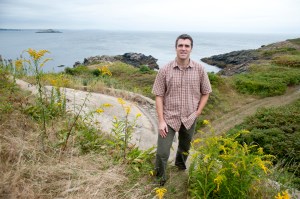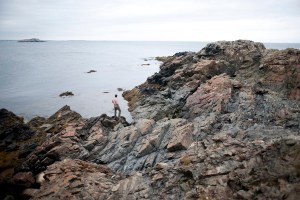
Justin
Ries
Associate Professor of Marine and Environmental Sciences
Justin Ries in the Press

Lobster shell disease nudges up slightly off of Maine
The Gulf of Maine is warming faster than most of the world’s oceans, so increased vigilance about possible growth of shell disease remains very important, said Justin Ries, a marine biogeochemist with Northeastern University. The low percentage of Maine lobster with shell disease could be temporary, he said.
Fox News
Acidic Chesapeake Bay water could threaten oysters
As the world’s oceans get more acidic, Chesapeake Bay oysters could be at risk. A more acidic bay could make it more difficult for mollusks, such as oysters, to build their shells through a process called calcification. But it could help crustaceans, such as blue crabs, build their shells more quickly, said Justin Ries, a […]

